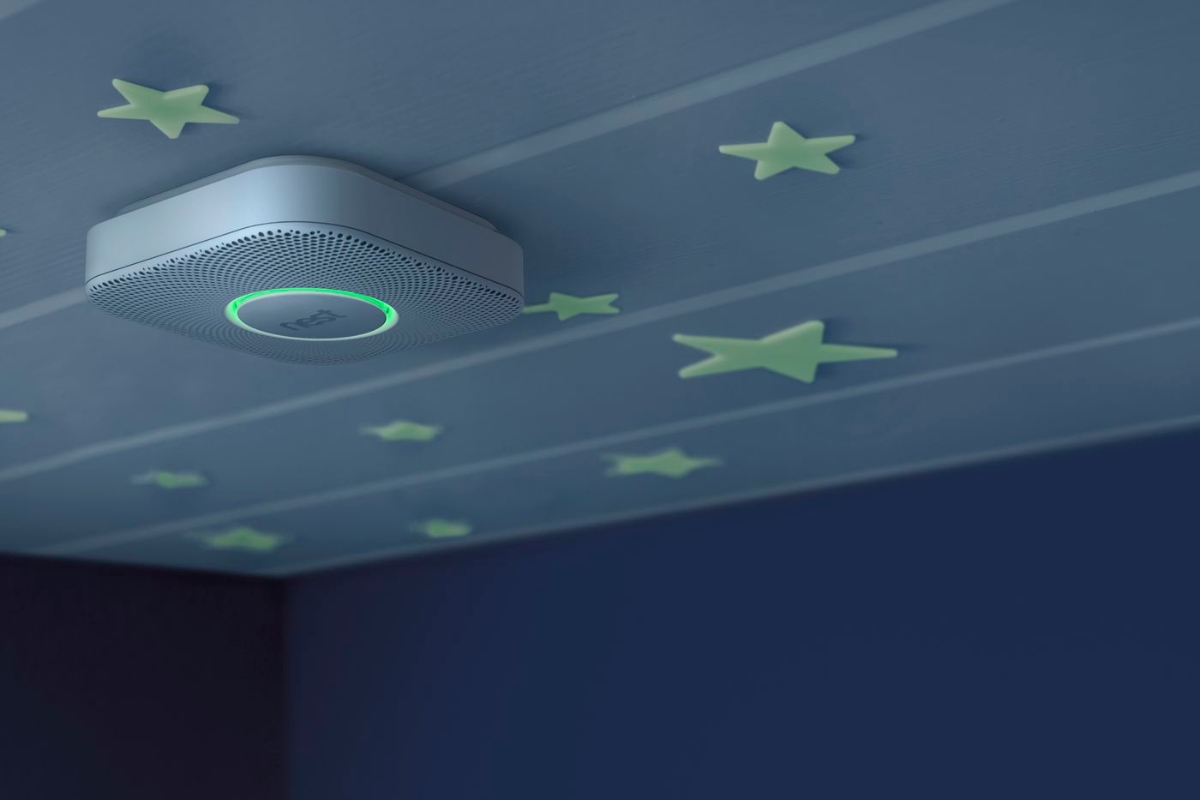

Articles
Why Does A Smoke Detector Beep At Night?
Modified: February 24, 2024
Discover why smoke detectors beep at night and learn how to troubleshoot and solve this common issue with our informative articles. Protect your home and family with these helpful tips.
(Many of the links in this article redirect to a specific reviewed product. Your purchase of these products through affiliate links helps to generate commission for Storables.com, at no extra cost. Learn more)
Introduction
In today’s modern world, smoke detectors play a vital role in ensuring the safety of our homes and families. These small devices are designed to detect the presence of smoke and alert us to the potential danger of a fire. However, it can be quite frustrating and concerning when a smoke detector starts beeping in the middle of the night. The incessant sound can disrupt our sleep and leave us wondering why it is happening.
In order to understand why smoke detectors beep at night, it is important to have a basic understanding of how these devices work. Smoke detectors are typically equipped with sensors that detect the presence of smoke particles in the air. When smoke is detected, the detector activates an alarm, which can be in the form of a loud beep or a flashing light, to warn occupants of the potential fire hazard.
While smoke detector beeping is usually a sign of danger, there are instances when it occurs for reasons other than a fire. It is essential to be able to distinguish between a real emergency and a false alarm in order to take appropriate actions.
This article will explore the common reasons why smoke detectors beep at night and provide strategies to stop the beeping. By understanding these underlying causes, you can ensure the proper functioning of your smoke detector and enjoy a peaceful night’s sleep without any unnecessary disturbances.
Key Takeaways:
- Promptly address low battery alerts in smoke detectors by replacing the battery and establishing a regular replacement schedule to ensure continuous functionality and optimal safety for your household.
- Be proactive in addressing malfunctioning detectors and external interferences to minimize false alarms, ensure reliable fire safety, and enjoy peaceful nights without unnecessary disruptions.
Read more: Why Does A Smoke Detector Beep?
Understanding Smoke Detectors
Smoke detectors are electronic devices that are installed in homes, commercial buildings, and other structures to detect the presence of smoke and alert occupants to the potential danger of a fire. These devices are considered essential for fire safety and can help save lives by providing early warning in case of a fire.
There are two main types of smoke detectors: ionization and photoelectric. Ionization smoke detectors use a small amount of radioactive material to ionize the air inside the detector. When smoke enters the chamber, it disrupts the electrical current, triggering the alarm. Photoelectric smoke detectors, on the other hand, use a light source and a sensor to detect smoke particles. When smoke enters the chamber, it scatters the light, which is then detected by the sensor, causing the alarm to activate.
Both types of smoke detectors are effective in detecting fires, but they may vary in their response to different types of fires. Ionization detectors are more sensitive to fast, flaming fires, while photoelectric detectors are better at detecting slow, smoldering fires. Some modern smoke detectors combine both ionization and photoelectric technologies for improved detection capabilities.
It’s also important to note that smoke detectors can be powered by either batteries or by hardwiring into the home’s electrical system. Battery-powered smoke detectors are more common in residential settings, while hardwired detectors are typically found in commercial buildings and newer homes. Some smoke detectors also come with a backup battery in case of a power outage.
Smoke detectors are typically installed on ceilings or high on walls, as smoke rises and tends to accumulate near the ceiling. It is recommended to install detectors in every bedroom, in the hallway outside sleeping areas, and on each level of the home for maximum protection.
Regular maintenance is crucial to ensure the proper functioning of smoke detectors. It is essential to test the alarms regularly, replace batteries as needed, and clean the detectors from dust and debris. Following the manufacturer’s instructions and guidelines is vital to maintain the effectiveness of smoke detectors.
Now that we have a better understanding of how smoke detectors work, let’s delve into the reasons why they may beep at night.
The Purpose of Smoke Detector Beeping
The primary purpose of smoke detector beeping is to alert occupants of the presence of smoke or a potential fire hazard. When a smoke detector detects smoke particles in the air, it triggers an alarm, which is typically in the form of a loud beeping sound. This audible signal serves as an important warning sign and prompts occupants to take immediate action to ensure their safety.
Beeping is a crucial feature of smoke detectors because it helps to overcome one of the main limitations of human perception during sleep. While we are awake, our senses are more alert and responsive to external stimuli. However, during sleep, our senses become dulled, and it can be more challenging to wake up or notice potential dangers.
By emitting a loud and persistent beeping sound, smoke detectors aim to overcome this limitation and effectively alert individuals even when they are in a deep sleep. The beeping sound acts as a signal for the occupants to wake up, evacuate the premises, and seek safety.
Moreover, smoke detector beeping helps to differentiate between a false alarm and an actual fire. False alarms can be caused by cooking smoke, steam, or other harmless sources. The beeping allows occupants to assess the situation, determine the source of the alarm, and take appropriate action. In cases where it is a false alarm, individuals can silence the detector or reset it after ensuring there is no actual fire.
Overall, the purpose of smoke detector beeping is to ensure the safety and well-being of occupants by providing a timely and effective warning system in the event of a potential fire. It serves as a wake-up call and prompts immediate action, enabling individuals to respond swiftly and evacuate the premises to prevent harm or loss of life.
Now that we understand the purpose of smoke detector beeping, let’s explore some common reasons why smoke detectors may beep at night.
Common Reasons for Nighttime Beeping
It can be quite alarming when a smoke detector starts beeping in the middle of the night. However, there are several common reasons why this might occur. Understanding these reasons can help you determine whether it is a real emergency or a false alarm.
1. Low Battery Alert: One of the most common reasons for nighttime beeping is a low battery. When the battery of a smoke detector is running low, the device will emit a beeping sound to alert you that it needs to be replaced. This is a safety feature designed to ensure that the smoke detector remains operational and can provide adequate warning in the event of a fire. It is important to promptly replace the battery with a fresh one to maintain the functionality of the smoke detector.
2. Malfunctioning Detector: Sometimes, a smoke detector may malfunction and produce false alarms or beep intermittently for no apparent reason. This could be due to various factors such as sensor issues, electrical problems, or aging equipment. If you have checked the battery and it is not the cause of the beeping, it may be necessary to replace the smoke detector entirely to ensure proper functionality.
3. Interference from External Factors: External factors can sometimes trigger false alarms or cause a smoke detector to beep. Steam from hot showers or cooking, excessive dust or debris around the detector, or even insects crawling into the device can interfere with the sensors and prompt the alarm to go off. Regularly cleaning the smoke detector and keeping the surrounding area free of dust and debris can help reduce the chances of false alarms.
4. Power Outage: If your smoke detector is hardwired into your home’s electrical system, it may beep during a power outage. This occurs because the smoke detector is equipped with a backup battery that kicks in when the main power source is interrupted. The beeping serves as a reminder to replace the backup battery once power is restored.
5. End of Life: Smoke detectors have a limited lifespan, usually between 8 to 10 years, depending on the model. When a detector reaches the end of its life, it may start beeping to signal that it needs to be replaced. It is crucial to replace outdated smoke detectors to ensure the continued safety of your home.
It is important to note that if your smoke detector is beeping continuously or you suspect an actual fire, it is essential to take immediate action. Evacuate the premises, contact the fire department, and ensure your safety.
Now that we have explored the common reasons for nighttime beeping, let’s discuss strategies to stop the beeping and restore peace in your home.
Low Battery Alert
One of the most common reasons for a smoke detector to beep at night is a low battery. When the battery level of a smoke detector drops below a certain threshold, it triggers a low battery alert, causing the device to emit a persistent beeping sound. This alert serves as a crucial reminder to replace the battery and maintain the functionality of the smoke detector.
Here are some key points to understand about low battery alerts in smoke detectors:
1. Importance of prompt action: When a smoke detector emits a low battery alert, it is crucial to take immediate action. Ignoring the alert can leave your home vulnerable to potential fire hazards, as the smoke detector may not function properly when it is needed most. Act promptly to replace the battery and ensure the continuous safety of your household.
2. Troubleshooting steps: If your smoke detector is beeping due to a low battery, follow these steps to resolve the issue:
- Locate the smoke detector: Identify the smoke detector that is beeping and make a note of its location.
- Get a fresh battery: Purchase a new battery that is compatible with your smoke detector. Refer to the manufacturer’s instructions for the recommended battery type.
- Turn off the power: If your smoke detector is hardwired, switch off the power to the detector to prevent any electrical mishaps while replacing the battery.
- Access the battery compartment: Depending on the model, you may need to slide or twist the smoke detector to access the battery compartment.
- Replace the battery: Remove the old battery and replace it with the new one. Ensure that the battery is properly inserted and secure.
- Test the smoke detector: After replacing the battery, turn on the power (if applicable) and perform a test to ensure that the smoke detector is functioning correctly. Some detectors have a test button that you can press to initiate a self-test.
3. Battery replacement schedule: To avoid unexpected low battery alerts in the future, it is a good practice to establish a battery replacement schedule. Set a reminder to replace the batteries in your smoke detectors at least once a year or as recommended by the manufacturer. Regularly replacing the batteries ensures that your smoke detectors remain fully operational and reliable.
4. Consider using long-lasting batteries: In addition to following a battery replacement schedule, you can also opt for long-lasting batteries such as lithium batteries. These batteries have a longer lifespan compared to traditional alkaline batteries, reducing the frequency of low battery alerts and the need for frequent replacements.
By taking these steps and promptly addressing low battery alerts, you can ensure the optimal performance of your smoke detectors and maintain a safe living environment for you and your loved ones.
Now that we understand the significance of low battery alerts, let’s explore other potential causes of nighttime beeping in smoke detectors.
Replace the batteries in your smoke detector regularly, as low battery power can cause it to beep at night. It’s recommended to change the batteries at least once a year.
Malfunctioning Detector
Another common reason for a smoke detector to beep at night is a malfunctioning detector. Despite regular maintenance and battery replacements, smoke detectors may experience malfunctions that result in false alarms or intermittent beeping. Understanding the signs of a malfunctioning detector can help you determine whether it needs to be repaired or replaced.
Here are some key points to consider regarding malfunctioning smoke detectors:
1. Signs of a malfunction: Malfunctioning smoke detectors may exhibit the following behaviors:
- Consistent false alarms: If your smoke detector is repeatedly alerting to smoke when there is no apparent fire or smoke source, it may be malfunctioning.
- Intermittent beeping: A smoke detector that beeps sporadically or without a clear pattern can indicate a malfunction. This inconsistent beeping can be disruptive and cause unnecessary stress.
- Failure to detect smoke: If a smoke detector fails to detect smoke or activate an alarm during a controlled smoke test, it may indicate a malfunction in the sensor or other internal components.
- Age and warranty: Keep in mind that smoke detectors have a limited lifespan, typically between 8 to 10 years. If your smoke detector is older than its designated lifespan, it may be more prone to malfunctions.
2. Troubleshooting steps: If you suspect your smoke detector is malfunctioning, you can try the following troubleshooting steps:
- Check the battery: Ensure that the battery is properly installed and has sufficient power to operate the smoke detector. Low battery voltage can cause malfunctioning behavior.
- Clean the detector: Dust and debris can accumulate within the smoke detector over time. Gently clean the detector using a soft brush or compressed air to remove any potential blockages or obstructions.
- Reset the detector: Sometimes, a simple reset may resolve the issue. Refer to the manufacturer’s instructions on how to reset your specific smoke detector model.
- Contact the manufacturer: If the problem persists, reach out to the manufacturer’s customer support for guidance or to inquire about warranty coverage.
3. Replacement considerations: If the smoke detector continues to malfunction, it is essential to replace it with a new one. Malfunctioning detectors can compromise the safety of your home by providing inaccurate readings or failing to alert you to a real fire. Invest in a reliable smoke detector from a reputable brand to ensure the ongoing protection and well-being of your household.
4. Professional inspection: If you are unsure about the functionality of your smoke detector or suspect a larger issue, consider hiring a professional inspector or electrician to assess your smoke alarm system. They can identify any potential problems, perform necessary repairs, or recommend suitable replacements.
By monitoring the performance of your smoke detectors and promptly addressing any signs of malfunction, you can maintain a reliable fire safety system in your home. Regularly testing and performing maintenance on your smoke detectors will help ensure that they are functioning optimally when a real fire emergency occurs.
Now that we have explored malfunctioning detectors, let’s discuss the potential interferences from external factors that can cause smoke detectors to beep at night.
Interference from External Factors
Another potential reason for a smoke detector to beep at night is interference from external factors. Smoke detectors are designed to be highly sensitive to smoke particles in order to effectively detect and warn us of potential fires. However, this sensitivity can also make them susceptible to triggers from certain external factors, leading to false alarms or periodic beeping.
Here are some common external factors that can interfere with smoke detectors:
1. Cooking Smoke: Smoke detectors located near kitchens or areas where cooking frequently takes place can be triggered by smoke and steam generated during cooking. This can cause the smoke detector to beep or activate an alarm even if there is no real fire. To mitigate this issue, consider repositioning your smoke detector away from the kitchen or installing a smoke detector specifically designed for kitchen environments.
2. Steam and Humidity: Steam from hot showers, saunas, or humidifiers can enter the sensing chamber of a smoke detector and trigger a false alarm. If your smoke detector is located in a bathroom with high humidity or steam, it may be helpful to ventilate the area or install a smoke detector that is specifically designed for humid environments.
3. Dust and Debris: Accumulation of dust, lint, or other debris on the sensors of a smoke detector can interfere with its proper function. Regularly clean your smoke detectors by gently dusting or vacuuming them to remove any buildup that may cause false alarms or beeping.
4. Insects and Pests: Insects or pests crawling inside the smoke detector can disrupt the sensing mechanism and trigger false alarms. Inspect your smoke detectors periodically and ensure they are free from any unwanted visitors. If needed, consult a pest control professional to address any pest issues in your home.
5. Placement near Air Vents: Smoke detectors placed near air vents or drafty areas may be affected by airflow, which can carry dust particles or other particulates into the detector’s sensing chamber. This can potentially lead to false alarms or intermittent beeping. Consider relocating the smoke detector away from direct airflow or installing air deflectors to minimize the impact.
While it may not be possible to completely eliminate all external factors that can interfere with smoke detectors, taking these measures can help reduce false alarms and nighttime beeping. Regular maintenance and cleaning of your smoke detectors are essential to ensure their optimal performance and accuracy.
If your smoke detector continues to beep persistently or exhibits repeated false alarms even after addressing these external factors, it may be a sign of a malfunctioning detector. In such cases, it is advisable to consult the manufacturer or a professional to further investigate the issue and ensure the reliability of your fire safety system.
Now that we understand the potential external factors that can cause smoke detectors to beep at night, let’s explore strategies to stop the beeping.
Strategies to Stop the Beeping
Dealing with a smoke detector beeping at night can be annoying and disruptive, but there are several strategies you can employ to stop the beeping and restore peace in your home. Here are some effective strategies to consider:
1. Replace the Battery: If the smoke detector is beeping intermittently or producing a low battery alert, the first step is to replace the battery. Ensure that you are using the correct type of battery recommended by the manufacturer. Once the new battery is installed, test the smoke detector to confirm that the beeping has stopped.
2. Clean the Detector: If the beeping persists after replacing the battery, it may be due to dust or debris interfering with the smoke detector’s sensors. Gently clean the detector using a soft brush or compressed air to remove any accumulated dust or debris that may be triggering the beeping.
3. Reset the Detector: Many smoke detectors have a reset button or a process that allows you to reset the device to its default settings. Refer to the manufacturer’s instructions and press the reset button or follow the recommended reset procedure to see if it resolves the beeping issue.
4. Check for Malfunctions: If the beeping continues despite replacing the battery and cleaning the detector, it may be a sign of a malfunction. Consider contacting the smoke detector manufacturer or a professional electrician to assess the device and determine if it needs repair or replacement.
5. Relocate the Detector: If the detector is beeping due to external factors such as cooking smoke or steam, consider relocating the smoke detector to a more suitable location. Place it away from kitchens, bathrooms, or areas prone to humidity or airflow that may trigger false alarms.
6. Install a Kitchen-Specific Detector: If cooking smoke is a persistent issue, consider installing a separate smoke detector specifically designed for kitchen environments. These detectors are equipped with features to decrease false alarms caused by cooking activities.
7. Upgrade to a Newer Model: If your smoke detector is outdated or nearing the end of its recommended lifespan, it may be time to upgrade to a newer model. Modern smoke detectors are equipped with advanced features, such as long-life batteries, improved sensors, and wireless connectivity for enhanced safety and convenience.
8. Consult a Professional: If you have tried the above strategies and the beeping continues or you are unsure about the issue, it is advisable to consult a professional electrician or contact the smoke detector manufacturer’s customer support for further assistance. They can provide guidance and advice based on your specific situation.
Remember, the safety of your home and loved ones is paramount. If the smoke detector is beeping persistently and you suspect an actual fire, immediately evacuate the premises, contact emergency services, and follow the necessary fire safety protocols.
By following these strategies and ensuring the proper maintenance and functionality of your smoke detectors, you can minimize false alarms, effectively respond to real emergencies, and enjoy a peaceful night’s sleep without unnecessary disruptions.
Now that we have explored strategies to stop the beeping, let’s conclude our discussion on smoke detector beeping at night.
Conclusion
Smoke detectors are essential devices for ensuring the safety of our homes and protecting our loved ones from the devastating effects of fires. However, it can be quite frustrating and concerning when a smoke detector starts beeping at night. Understanding the reasons behind the beeping can help us address the issue effectively and maintain the functionality of our smoke detectors.
In this article, we have discussed various aspects of smoke detector beeping, from understanding how smoke detectors work to exploring the common reasons for nighttime beeping. We have learned that low battery alerts, malfunctioning detectors, interference from external factors, such as cooking smoke or steam, and power outages can all contribute to the beeping of smoke detectors at night.
To stop the beeping, we have explored effective strategies such as replacing the battery, cleaning the detector, resetting the device, checking for malfunctions, relocating the detector, installing kitchen-specific detectors, and upgrading to newer models. We have emphasized the importance of regular maintenance, following manufacturer’s guidelines, and seeking professional assistance when needed.
It is essential to take smoke detector beeping seriously and respond promptly to ensure the ongoing safety of our homes. While some instances of beeping may simply require a battery replacement or minor adjustments, it is crucial to distinguish between false alarms and real fire emergencies. Understanding the purpose of smoke detector beeping and being prepared to take appropriate action can make a significant difference in emergency situations.
Remember to periodically test your smoke detectors, replace batteries as needed, clean the detectors from dust and debris, and keep them updated to ensure their optimal performance. By following these practices, you can keep your home well-protected and provide a safe living environment for your family.
In conclusion, smoke detector beeping at night can occur due to various reasons, but with proper maintenance, troubleshooting, and awareness, we can effectively address these issues and ensure that our smoke detectors function reliably. By staying vigilant and proactive, we can rest assured knowing that we are taking the necessary steps to protect our homes and loved ones from potential fire hazards.
Frequently Asked Questions about Why Does A Smoke Detector Beep At Night?
Was this page helpful?
At Storables.com, we guarantee accurate and reliable information. Our content, validated by Expert Board Contributors, is crafted following stringent Editorial Policies. We're committed to providing you with well-researched, expert-backed insights for all your informational needs.
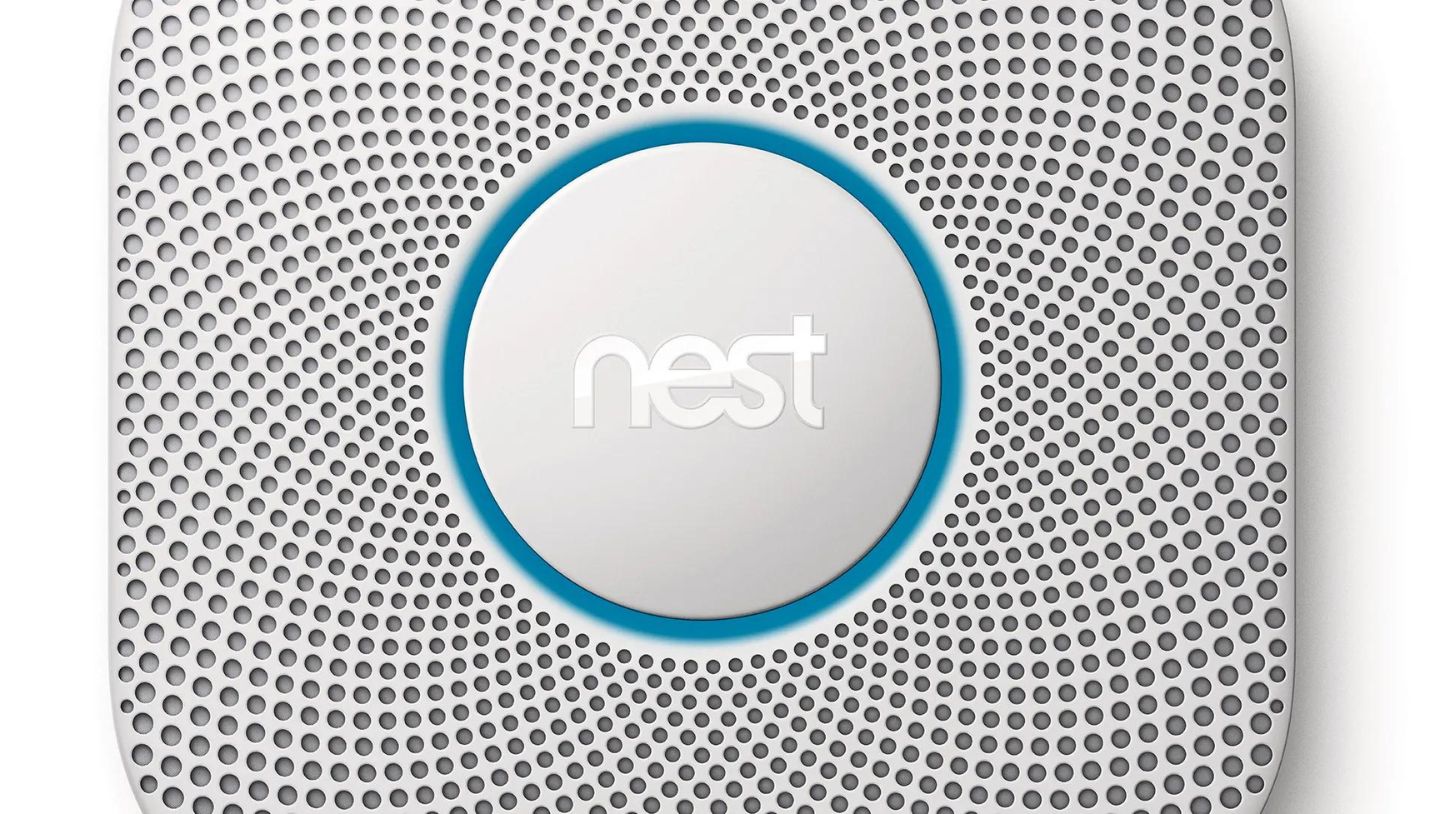
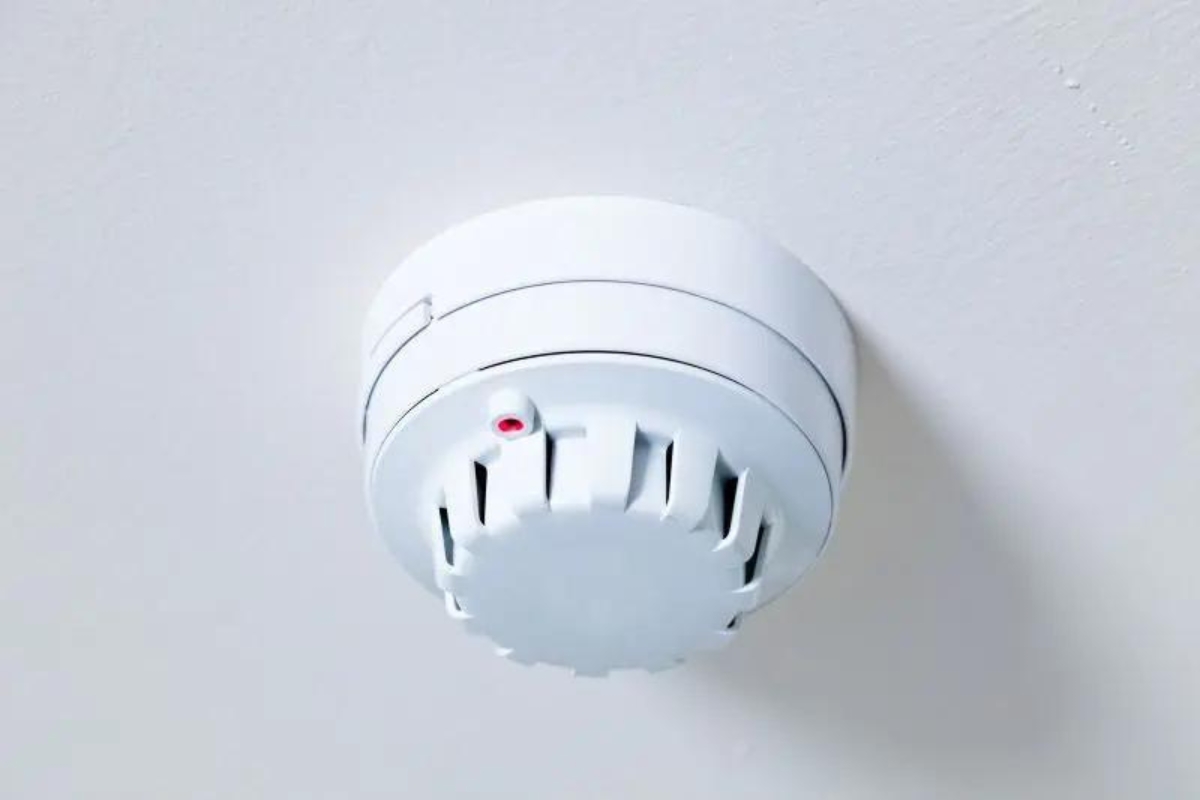
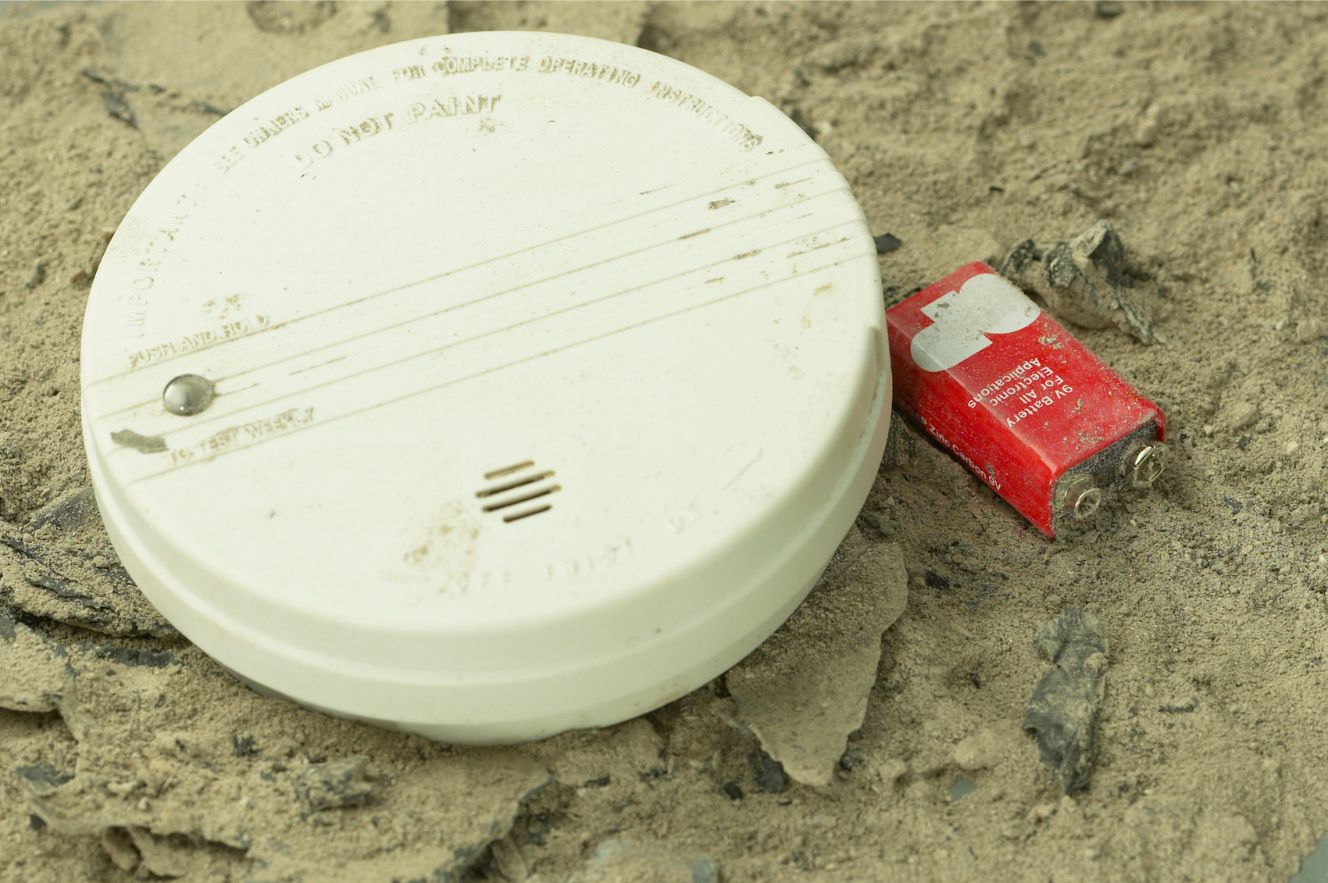
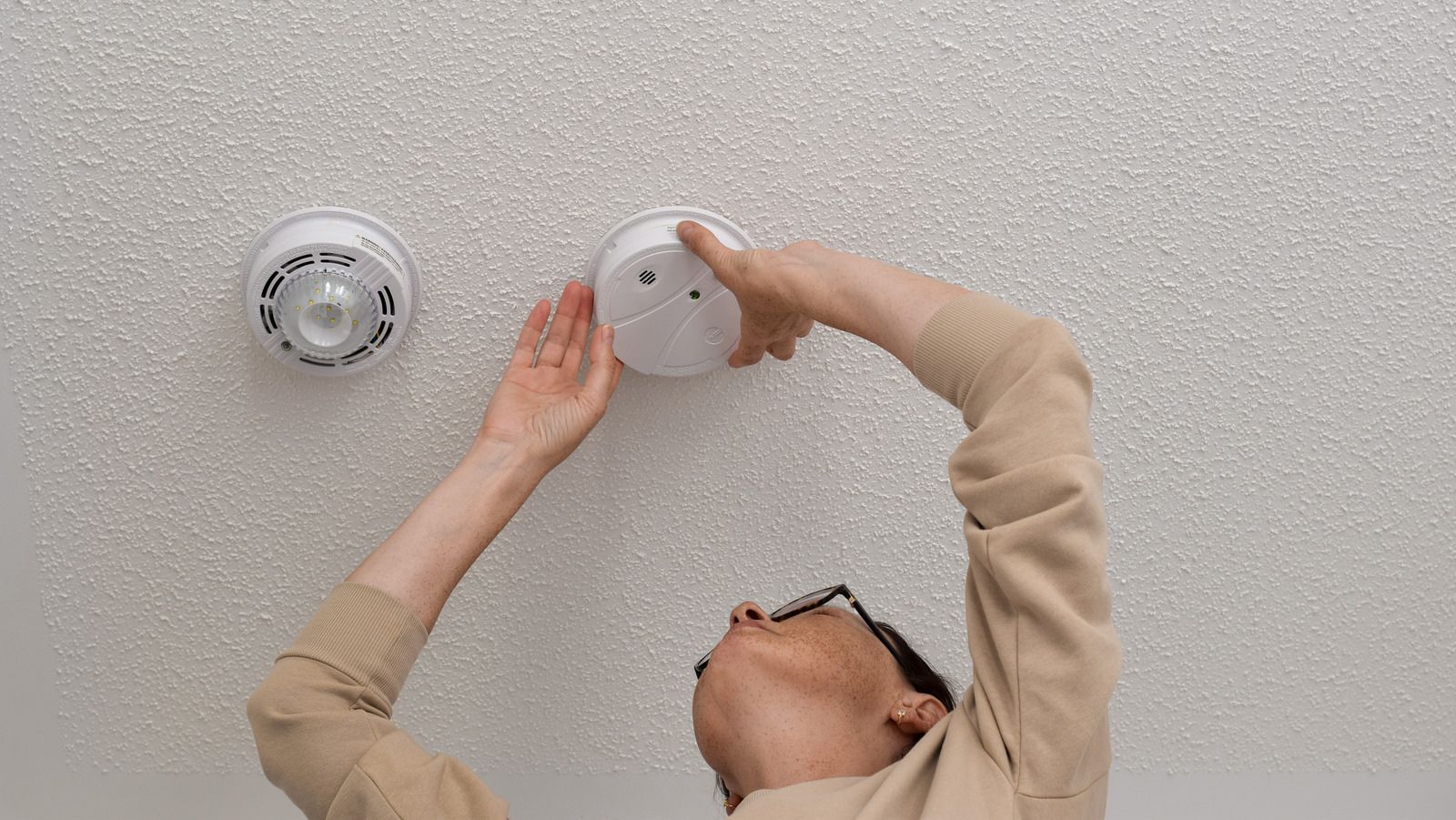
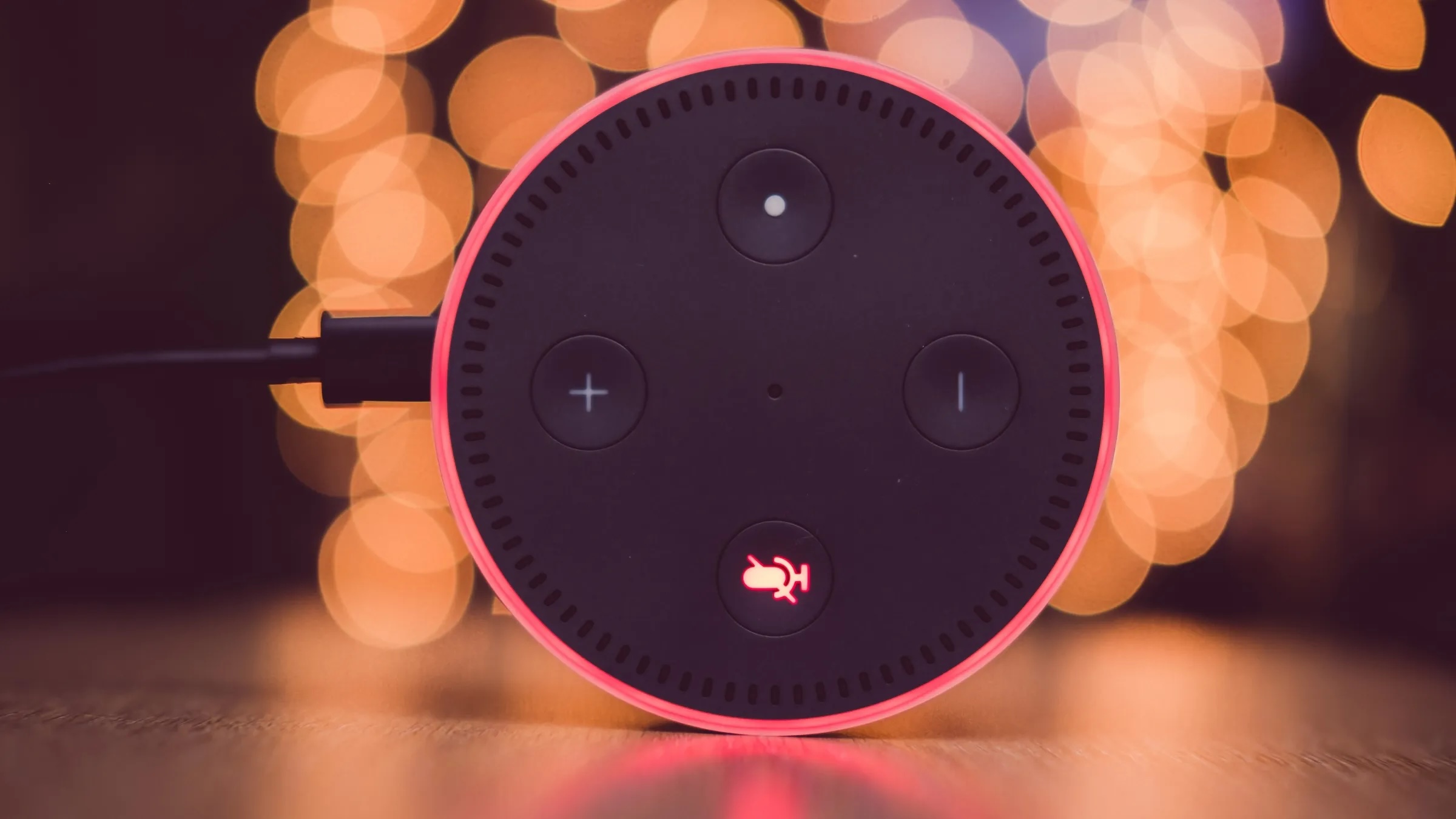
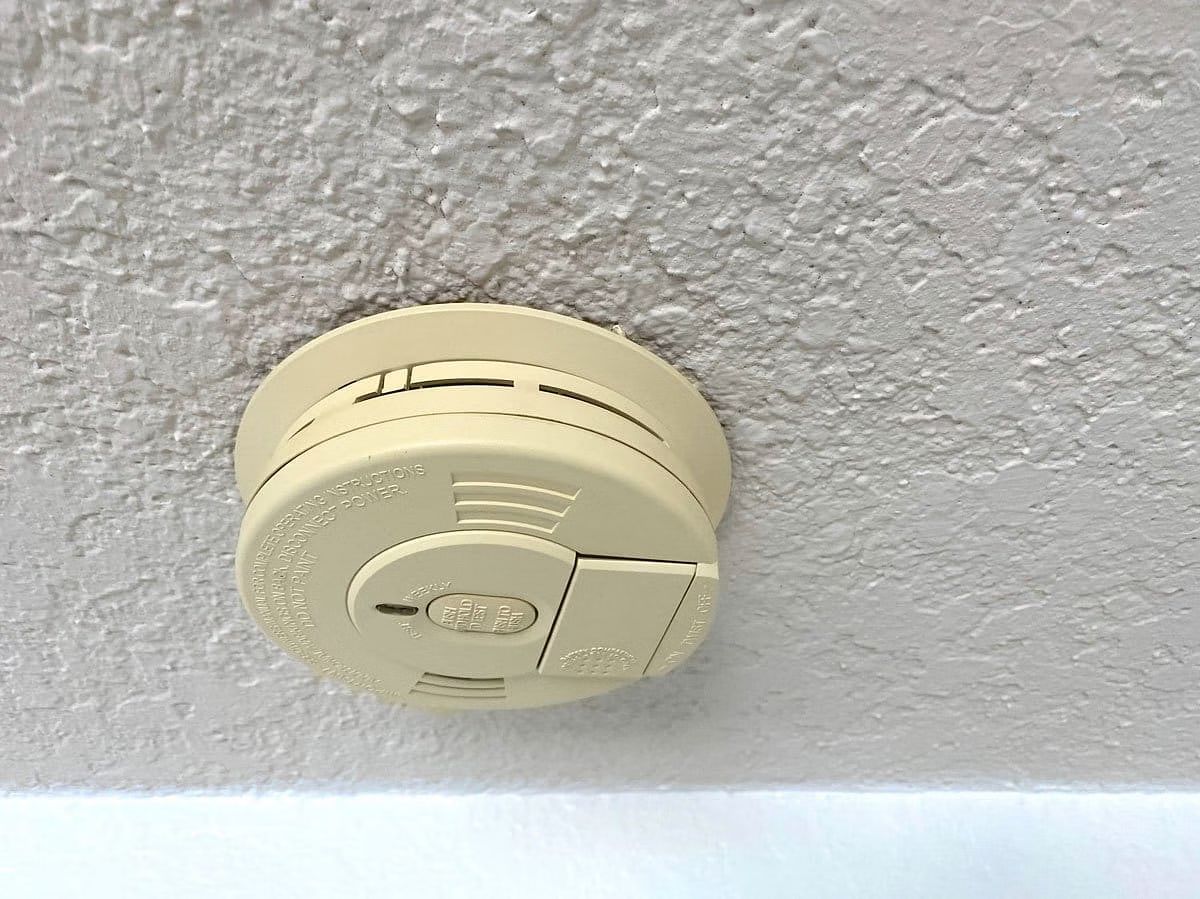
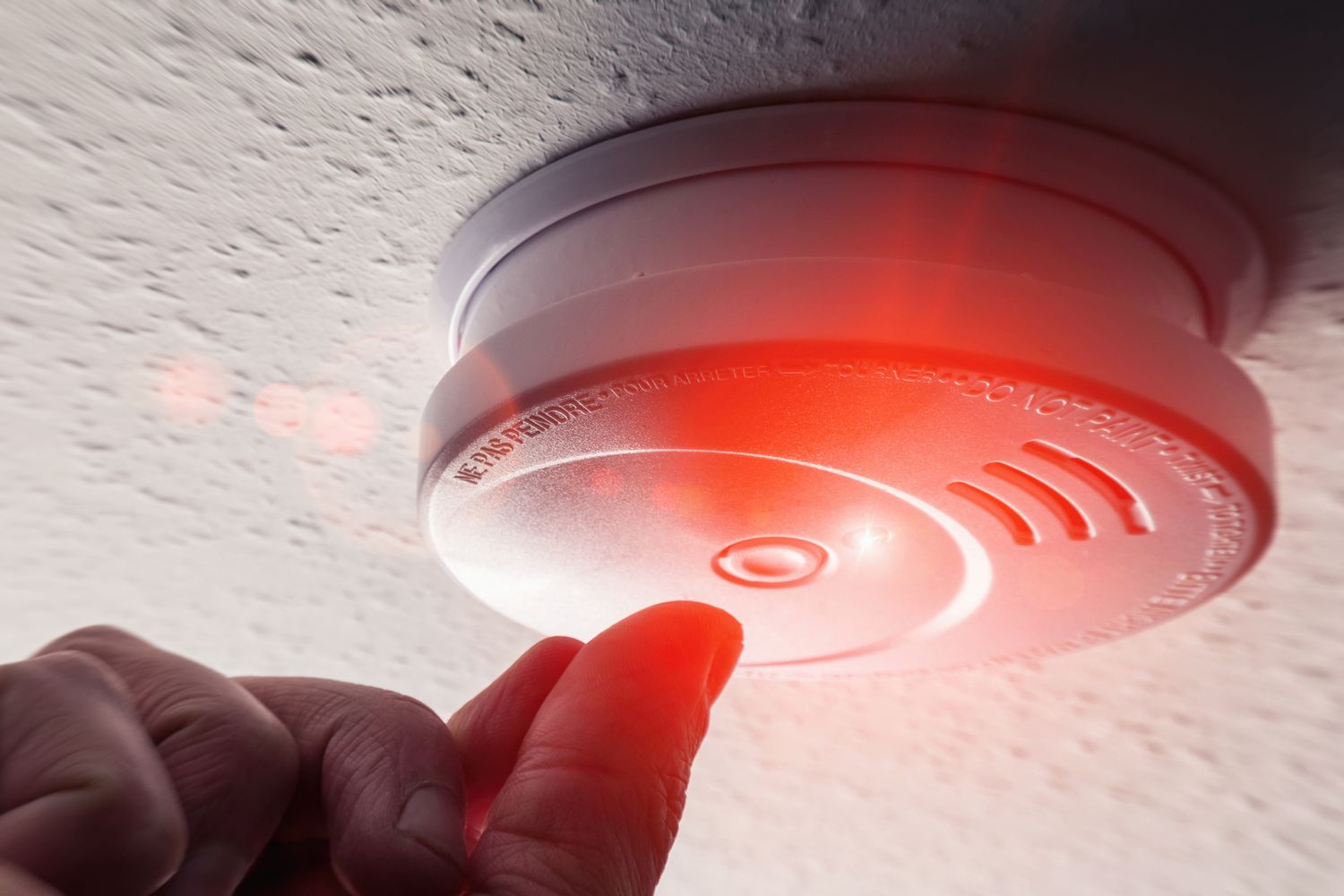
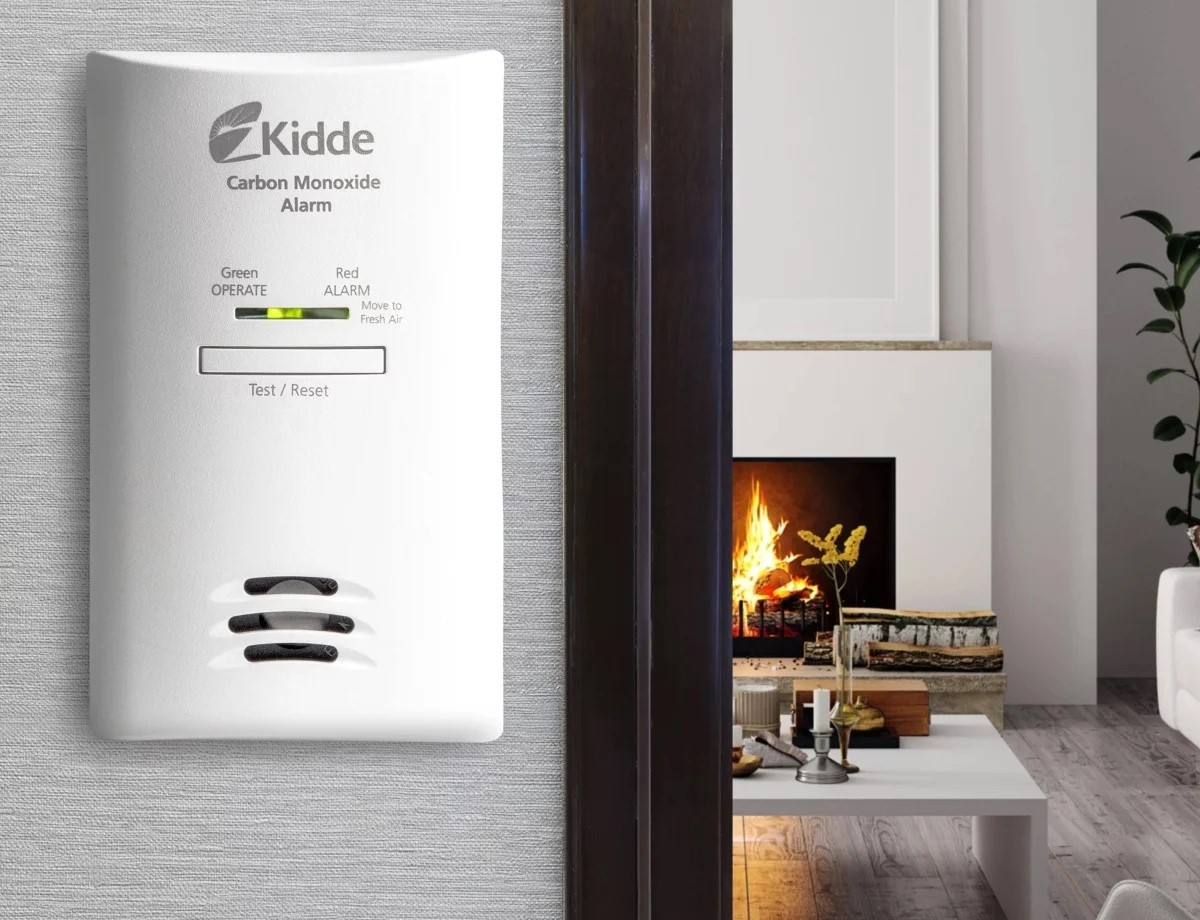
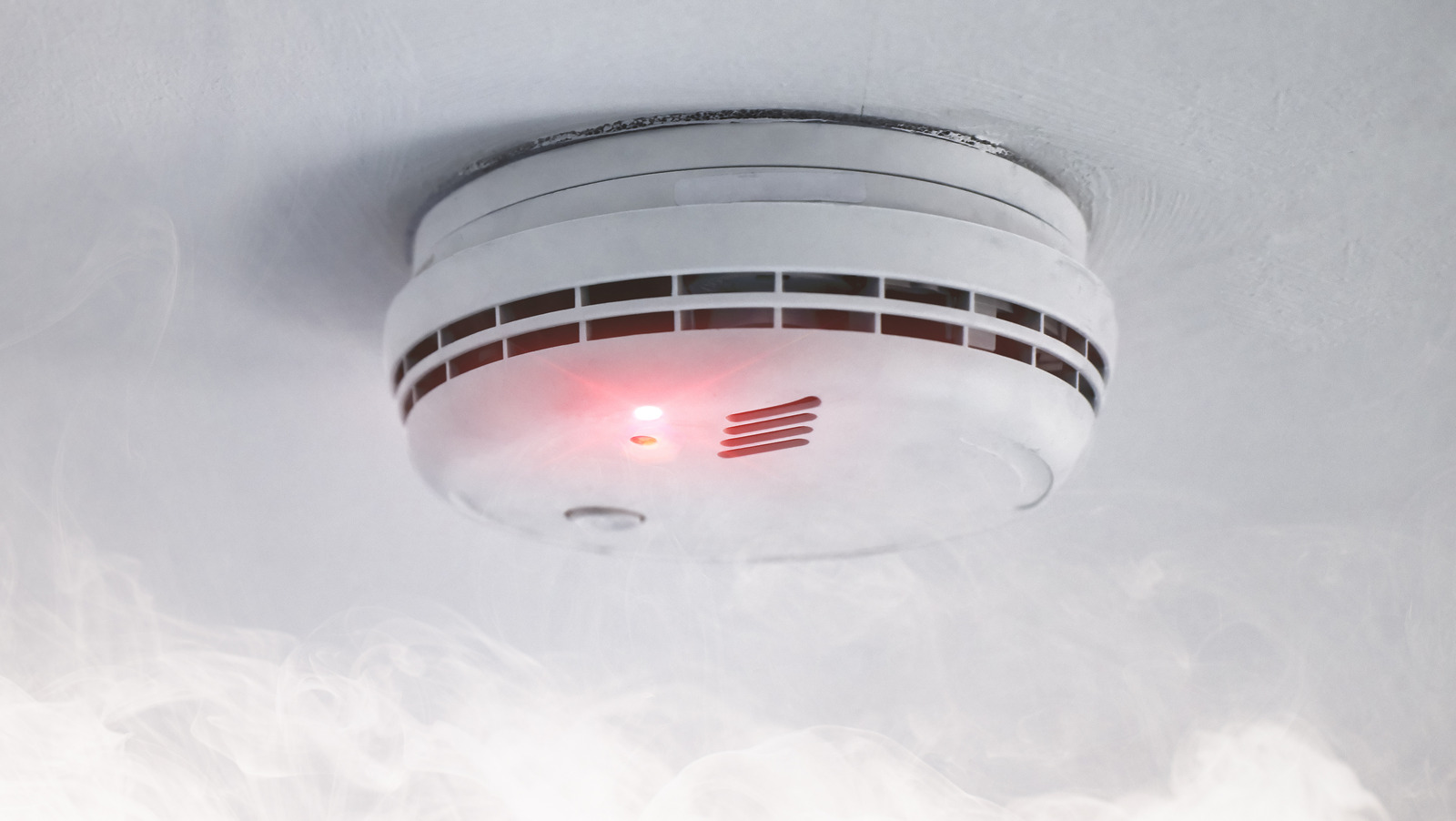
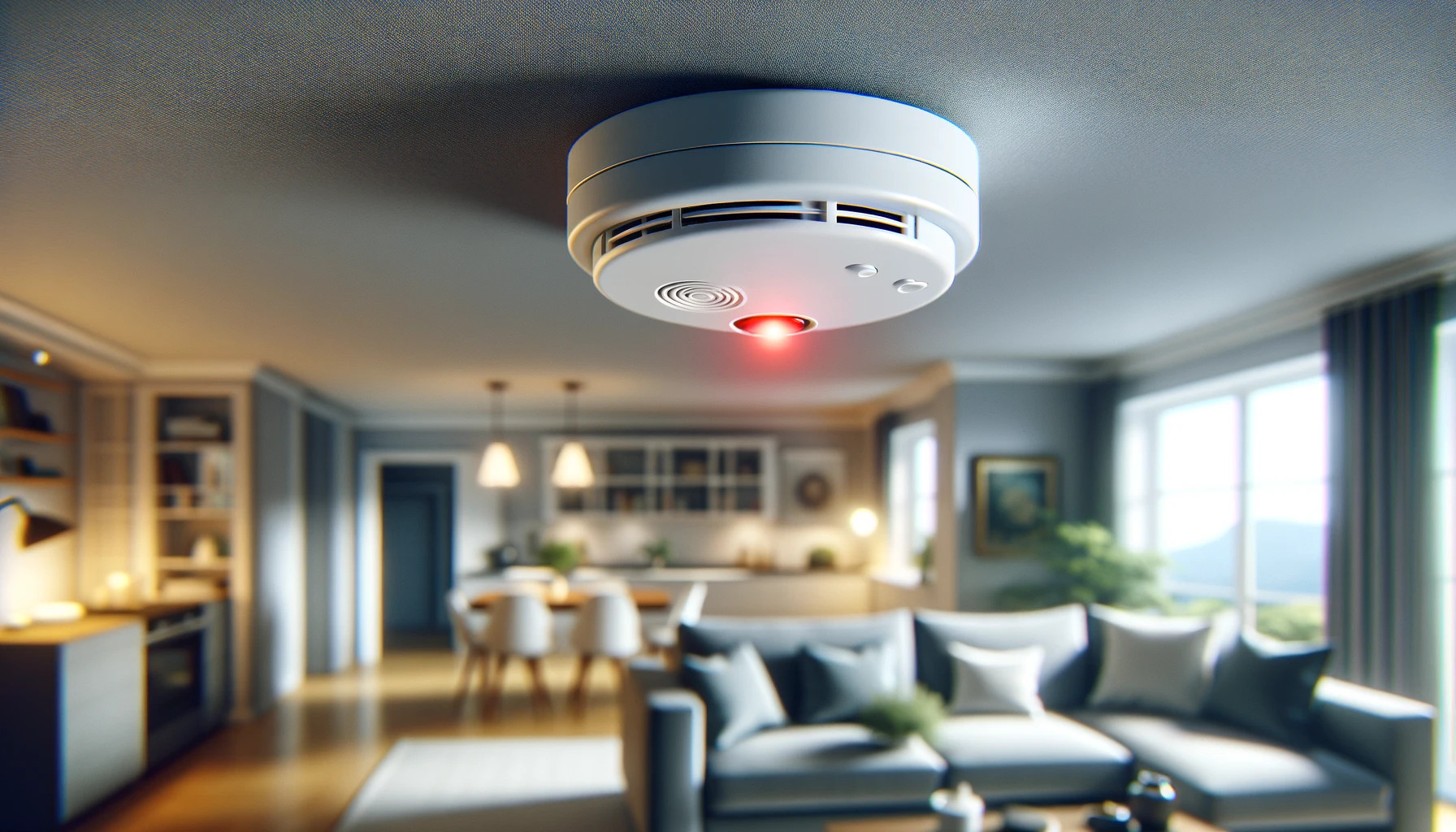
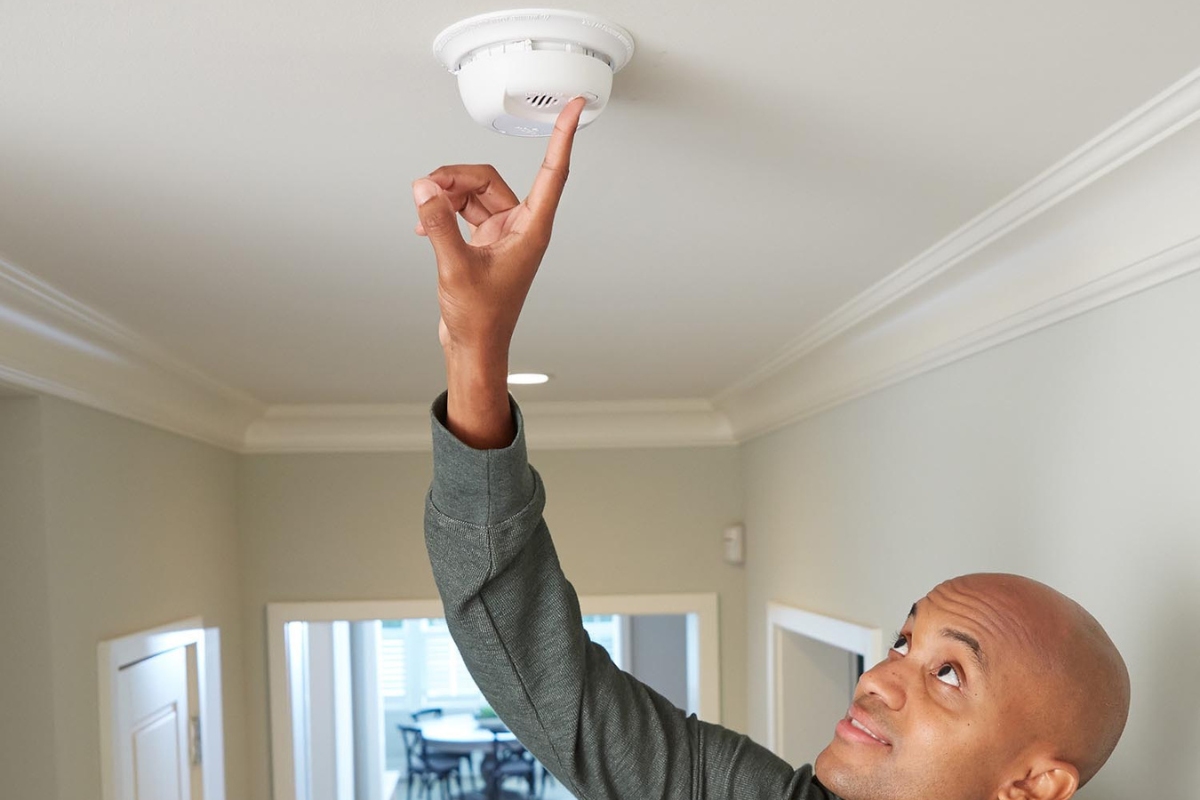
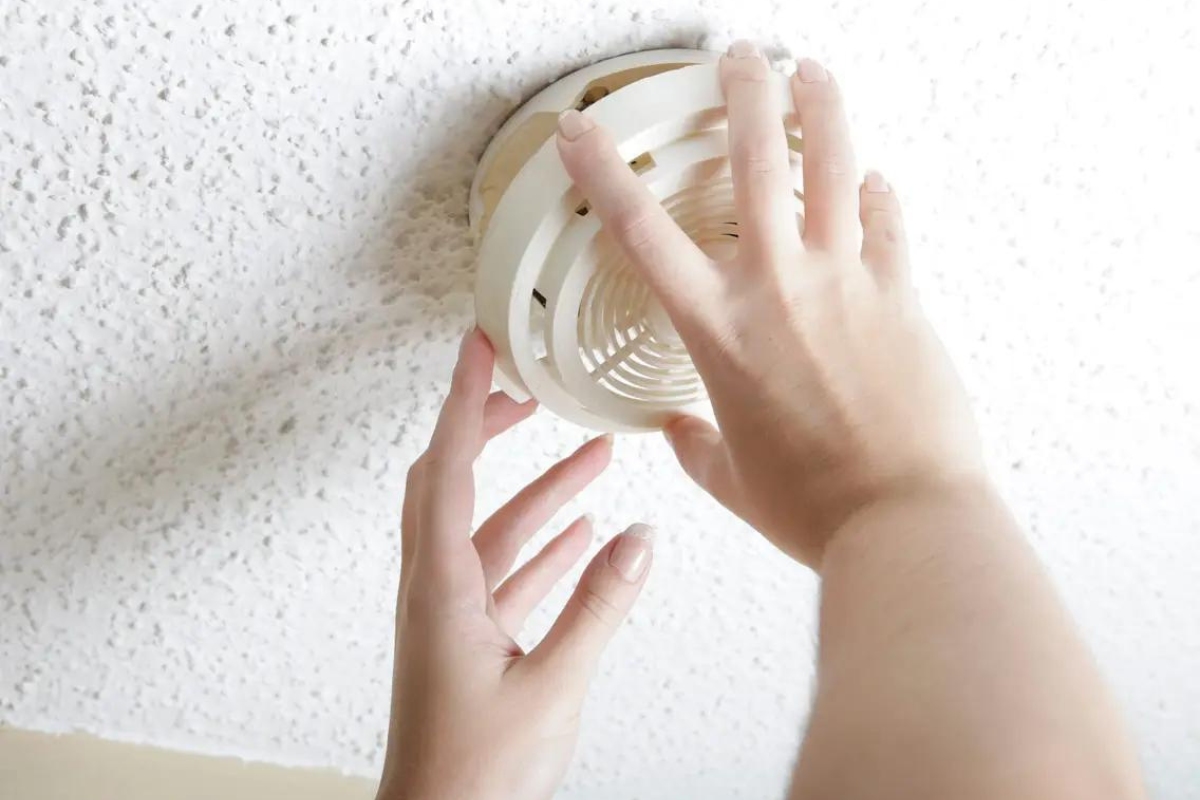
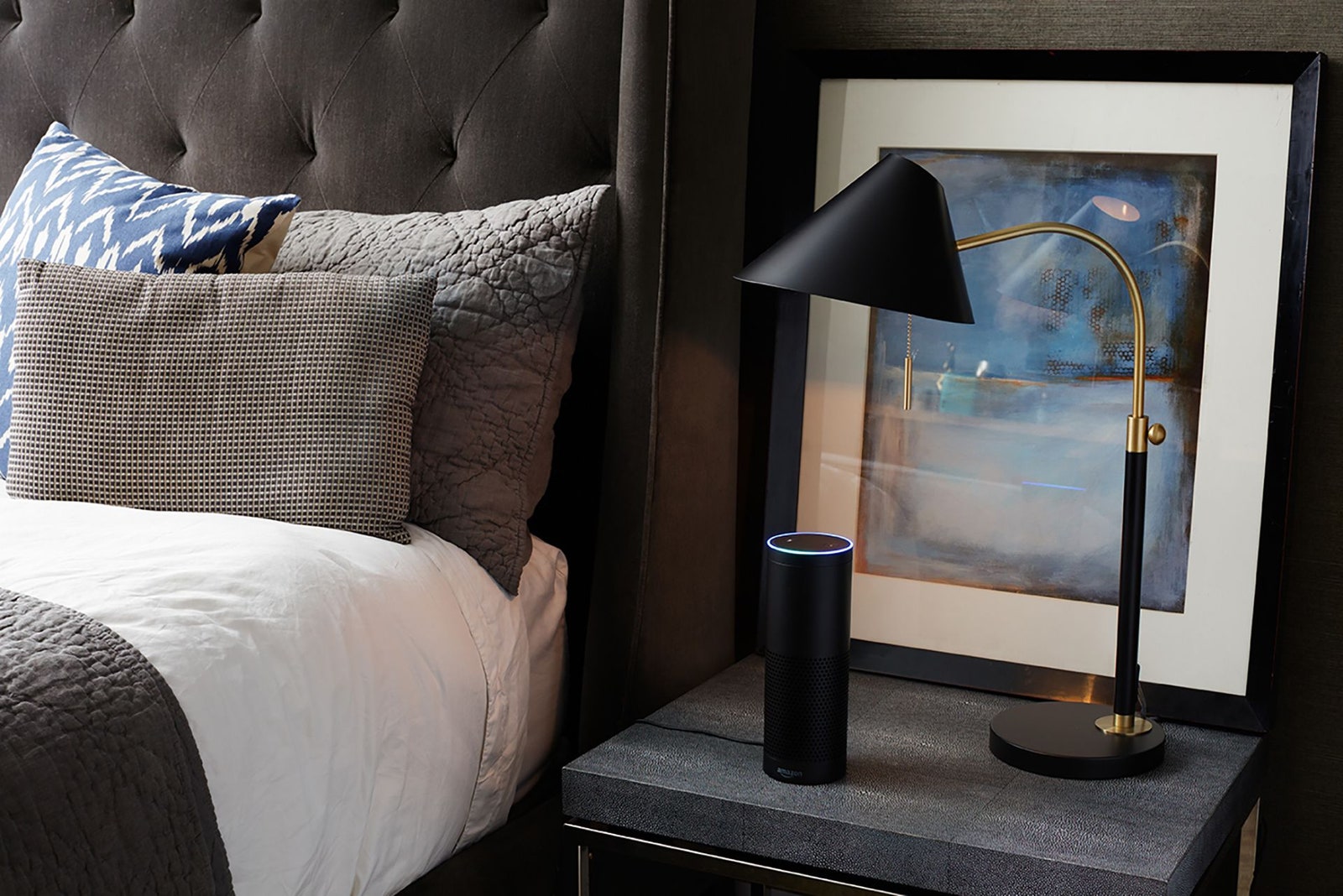
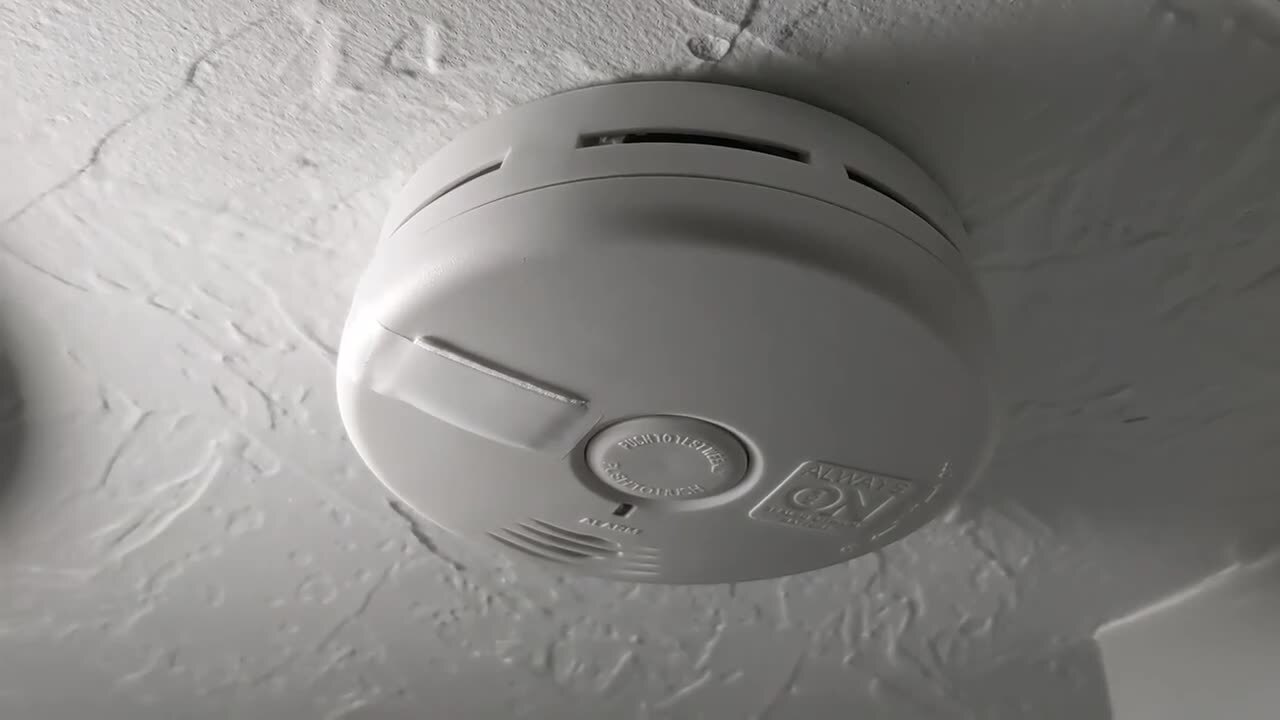

0 thoughts on “Why Does A Smoke Detector Beep At Night?”